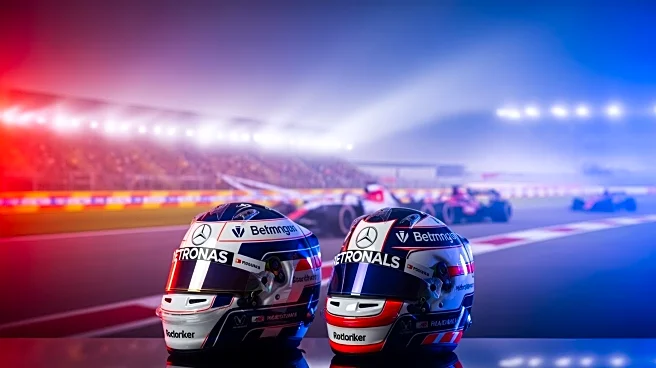What's Happening?
Several Formula 1 teams are set to feature rookie drivers in the first practice session of the Mexico City Grand Prix. Notable drivers such as Lewis Hamilton, Max Verstappen, and Lando Norris will miss
the session as teams fulfill their requirement to run rookies in at least two practice sessions during the season. The Autodromo Hermanos Rodriguez, known for its simplicity, provides an ideal setting for this initiative. Teams like McLaren, Ferrari, Mercedes, and Red Bull have announced their rookie drivers, including Pato O'Ward, Antonio Fuoco, Frederik Vesti, and Arvid Lindblad, respectively. This move allows teams to evaluate emerging talent while complying with regulations.
Why It's Important?
The inclusion of rookies in practice sessions is crucial for the development of new talent in Formula 1. It provides young drivers with valuable experience and exposure to high-level competition. For teams, it is an opportunity to assess potential future drivers and strategize for upcoming seasons. This practice session is particularly significant as it occurs in a non-Sprint event, allowing teams to focus on rookie development without the pressure of immediate race results. The decision also impacts championship contenders, as it alters their preparation for the race weekend.
What's Next?
Following the Mexico City Grand Prix, teams will continue to strategize for the remaining races of the season, including the Sprint weekend in Brazil and the penultimate round in Qatar. The performance of rookies in Mexico City may influence team decisions regarding driver line-ups for the next season. Red Bull, for instance, is expected to make decisions about Verstappen's teammate and Racing Bulls seats for 2026 after the event. The rookies' performance could also impact their future prospects in Formula 1.
Beyond the Headlines
The initiative to include rookies highlights Formula 1's commitment to nurturing new talent and ensuring the sport's sustainability. It reflects a broader trend in motorsports to balance competitive racing with developmental opportunities. The event also underscores the importance of strategic planning in team management, as decisions made during these sessions can have long-term implications for driver careers and team dynamics.










